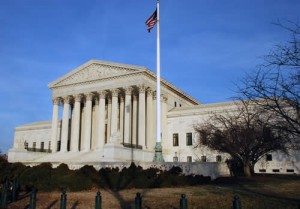The Final Frontier . . . for Law?
 Marquette’s faculty workshop series continued today with a terrific presentation by Joanne Gabrynowicz of the University of Mississippi School of Law. Joanne, who directs the National Center for Remote Sensing, Air, and Space Law, brought us up to speed on the major legal challenges facing space tourism (“informed consent is the issue”) and other persistent difficulties relating to the commercial use of space (e.g., allocation of rights and responsibilities between public and private sectors). Joanne’s blog looks like a great resource for anyone interested in following these issues.
Marquette’s faculty workshop series continued today with a terrific presentation by Joanne Gabrynowicz of the University of Mississippi School of Law. Joanne, who directs the National Center for Remote Sensing, Air, and Space Law, brought us up to speed on the major legal challenges facing space tourism (“informed consent is the issue”) and other persistent difficulties relating to the commercial use of space (e.g., allocation of rights and responsibilities between public and private sectors). Joanne’s blog looks like a great resource for anyone interested in following these issues.

